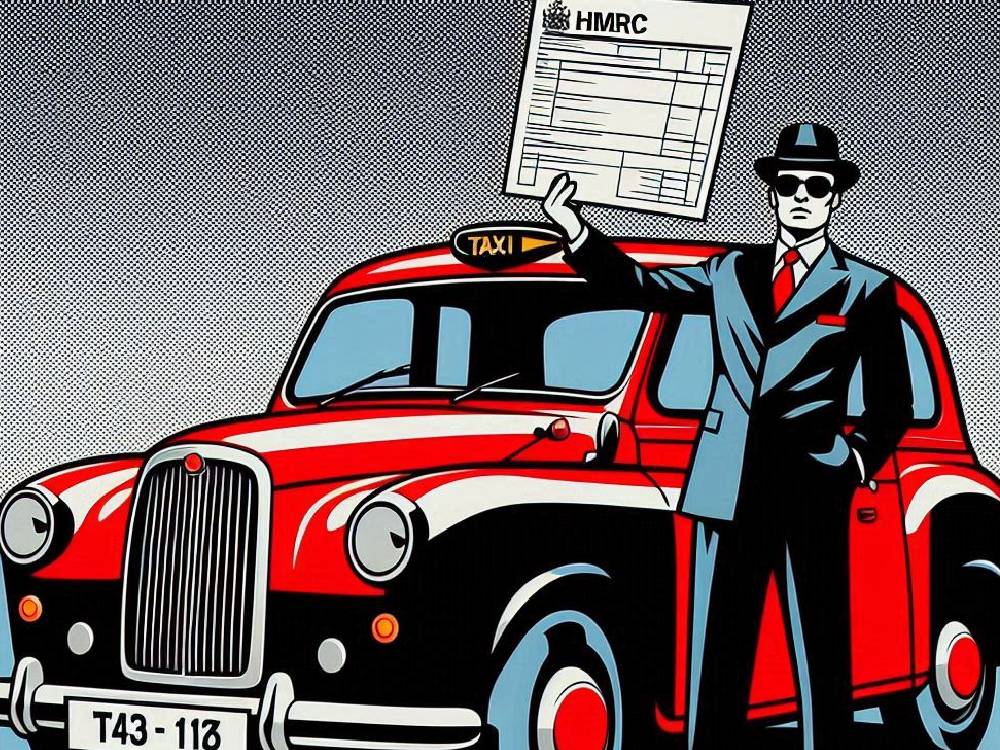Introduction
In a significant move towards enhancing tax compliance within the digital marketplace, the UK Government has introduced new legislation requiring taxi and private hire vehicle (PHV) operators to report drivers’ earnings to Her Majesty’s Revenue and Customs (HMRC).
This new system has caused considerable concern among drivers.
In this article, we’ll explore the new rules, their impact on drivers, and address common worries.
- Overview of new rules.
- Impact on drivers.
- Addressing concerns.
- Broader implications.
- Preparing for the change.
Overview Of New HMRC Reporting Rules
The “Reporting Rules for Digital Platforms” came into effect in January 2024.
This legislation mandates all digital taxi and private hire vehicle operators in the UK to collect and store revenue data for their drivers.
This data will be reported annually to HMRC starting from January 2025.
This new law aims to create an equitable environment for businesses operating in the digital space.
It is expected to affect approximately 2-5 million digital service businesses, including taxi and PHV operators.
Digital platforms must now gather additional information from drivers, such as National Insurance numbers, to ensure accurate reporting.
This change is part of a broader effort to enhance transparency and compliance within the digital economy.
Do you see where this is going?
Impact On Taxi Drivers
Taxi drivers are at the forefront of these changes.
The requirement to report earnings accurately to HMRC has raised several concerns:
First, there is the issue of potential errors in earnings reporting.
Drivers worry that discrepancies between their records and the data reported by operators could lead to problems with HMRC.
Secondly, the new system will allow drivers to track their earnings through weekly and annual statements.
However, these statements might not align perfectly with self-assessment tax returns, which follow an April-to-April fiscal year.
This mismatch could complicate financial planning for many drivers.
But that’s not all.
Drivers need to ensure that any discrepancies in their revenue statements are addressed promptly with their respective operators.
This is crucial to prevent mistakes from being logged with HMRC.
Learn more about how taxi insurance costs can impact your financial planning.
Explore cheap car insurance options for taxi drivers.
Addressing Taxi Drivers Concerns
One of the primary concerns for drivers is the difference in accounting periods.
Operator statements will cover a calendar year, whereas self-assessment tax returns follow the fiscal year.
This difference might lead to more complex split revenue outcomes, requiring careful attention from drivers.
To address these issues, drivers should:
- Monitor their earnings regularly.
- Compare operator statements with personal records.
- Promptly address any discrepancies with their operators.
It’s also crucial for drivers to understand that the new regulations are specifically designed to enhance overall transparency and fairness within the industry.
Furthermore, by ensuring accurate reporting, the system aims to significantly reduce potential underreporting and fraud.
This not only benefits drivers but also other stakeholders in the long run.
Ultimately, these measures contribute to a more equitable and transparent environment for everyone involved.
Check out tips for saving money on car insurance.
Explore the impact of your credit score on car insurance.
Broader Implications
The implications of these new rules extend beyond taxi and private hire services.
Moreover, the legislation also extends to various digital platform services, including food delivery and freelance work.
In addition, these regulations require companies in these sectors to adhere to the same standards.
Furthermore, this broad application ensures consistency across different types of digital services.
Ultimately, this comprehensive approach aims to create a level playing field for all digital service providers.
Companies operating in these sectors must now gather and share data, including bank account information, with HMRC.
This is big.
While this legislative change aims to bring fairness and transparency to the digital economy, it also presents some initial unknown challenges and concerns for those operating within it.
The goal is to create a level playing field, ensuring that all digital service providers adhere to the same standards of tax compliance.
The new HMRC reporting rules mark a significant shift in how digital platform earnings are tracked and reported.
While there are concerns about potential errors and discrepancies, the overall aim is to enhance transparency and fairness in the digital marketplace.
Taxi drivers and other affected parties must stay informed and proactive in managing their earnings and reporting obligations.
For more details on managing your taxi insurance premiums, visit our comprehensive guide.
Check out ways to reduce your insurance costs.
Taxi Drivers To Prepare For The Change
To navigate these changes, taxi drivers and operators must take proactive steps.
First, operators should set up systems to collect and store the necessary data accurately.
In addition, drivers must regularly monitor their earnings and cross-check them with the data provided by operators.
Furthermore, address any discrepancies promptly to prevent issues with HMRC.
But that’s not all.
Moreover, operators may need to update their software systems to facilitate seamless data collection and reporting.
Similarly, drivers should familiarize themselves with the new reporting formats and schedules.
Additionally, joining industry forums or associations could provide valuable support and updates regarding these changes.
By staying proactive and well-informed, both operators and drivers can navigate these changes smoothly.
To comply with these new regulations, companies must gather and report detailed driver information, such as National Insurance numbers and bank account details.
Ultimately, this will create a fairer and more transparent system.
Conclusion
In conclusion, the new HMRC reporting rules represent a significant shift in how digital platform earnings are tracked and reported.
Although concerns exist about potential errors and discrepancies, the overall aim is to enhance transparency and fairness in the digital marketplace.
So, what does this mean for taxi drivers?
Taxi drivers and other affected parties must stay informed and proactively manage their earnings and reporting obligations.
These changes benefit the entire industry by reducing fraud and ensuring fair competition.
Therefore, it is essential for everyone involved to understand and comply with the new rules.
Additionally, explore ways to save money on car insurance to maximise your benefits.
By following these guidelines, you can ensure a smoother transition and continued compliance with HMRC regulations.
Remember, staying proactive is key.
Stay informed and adapt to these changes to ensure you remain compliant and efficient in your operations.






